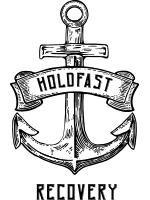
Meth Rehab in Prescott
Arizona Methamphetamine Addiction Treatment
Contact Us | Call Us | Admissions
If you or someone you love is struggling with methamphetamine addiction, the path forward can seem hopeless and unclear. Complex cravings can make you feel powerless and unable to overcome the meth’s grip on your life. But while seeking help for meth addiction is not easy, recovery is possible. With the right treatment—including a whole-person, faith-based approach to sobriety—you can find the tools and support you need to quit for good.
As a Christian alcohol and drug rehabilitation center based in Prescott, Arizona, Holdfast Recovery offers personalized meth addiction treatment programs to those struggling with drug abuse who are ready to make a change. Our three-phase program is designed to provide you with the comprehensive support you need to address the addiction, treat the underlying trauma, and create healthy, meaningful relationships that allow you to achieve long-term sobriety.
To learn more about our meth rehab in Prescott, contact us directly at (800) 680-7738 and speak to one of our admissions counselors about our effective treatment options.
What Is Methamphetamine Misuse?
Methamphetamine is a highly addictive stimulant that primarily affects a person’s central nervous system. Because of its dangerous and addictive nature, methamphetamine is only available legally in the U.S. via non-refillable prescriptions, and its medical use is relatively limited.
Though it is not often prescribed by medical professionals, meth is widely misused in the United States due to its euphoric effects and despite its long-lasting, detrimental effects on the central nervous system. Meth is frequently misused in what is known as a “binge and crash” pattern. This involves a person ingesting the drug continuously, as its euphoric effects typically wear off before it has significantly left the bloodstream. This can be incredibly dangerous and may even lead to fatal overdose.
Signs of Meth Addiction
Like other drugs, methamphetamine affects each user differently. That being said, there are some universal signs that indicate a growing tolerance, dependence, or addiction.
Signs that you may be developing a meth addiction include:
- Increased tolerance (needing more meth to achieve the same effect)
- Using more meth for longer periods of time on an increasing basis
- Withdrawal symptoms when not using meth (fatigue, increased appetite, irritability, etc.)
- Lying to loved ones/feeling the need to keep drug use secret
- Loss of interest in activities you used to enjoy, relationships, and goals
- Frequent interpersonal and relationship problems
- Financial problems/prioritizing meth use over financial stability
- Neglecting responsibilities (such as going to work, caring for children, etc.)
- Trying and failing to quit or cut back on meth use
- Prioritizing meth use as a primary goal in life over all else
Signs that someone you love may be headed down the wrong path include:
- Unexplained changes in mood or behavior
- Hyperactivity
- Mood swings and sudden outbursts
- Sudden extreme weight loss
- Jerky movements/twitching
- Development of new facial tics
- Dilated pupils and rapid eye movements
- Noticeable changes in sleeping patterns
- Sores
- Poor oral hygiene
- Unexplained burns on fingers and lips
- Paranoia
- Anxiety
- Insomnia
- Confusion
Telltale signs of methamphetamine use may be more noticeable when a person is “tweaking” (a period of a few days to a couple weeks characterized by intense anxiety, paranoia, confusion, irritability and insomnia) or “crashing” (a period of one to three days in which a person exhibits signs of extreme exhaustion, such as long hours of sleep, depression, and drug cravings).
Signs and Symptoms of a Methamphetamine Overdose
Recognizing the signs of a methamphetamine overdose is essential for timely intervention. Common symptoms include:
- Rapid Heart Rate and High Blood Pressure
- Hyperthermia
- Agitation and Anxiety
- Seizures
- Hallucinations
- Confusion and Delirium
- Chest Pain
- Difficulty Breathing
- Kidney Failure
What to Do If You Suspect a Methamphetamine Overdose
If you suspect that someone has overdosed on methamphetamine, follow these steps:
- Call Emergency Services: Immediately call 911 or your local emergency number. Do not hesitate to seek professional medical help.
- Stay Calm and Reassure the Person: If possible, stay with the person and try to calm them down. Reassure them that help is on the way.
- Monitor Vital Signs: If you can safely do so, monitor the person's breathing, pulse, and temperature.
- Administer First Aid: If the person is not breathing, begin CPR. However, prioritize calling emergency services first.
- Do Not Leave the Person Alone: Stay with the person until medical professionals arrive.
Long Term Effects of Meth Addiction
- Psychosis
- Deficits in motor skills
- Memory loss
- Aggressive behavior
- Mood swings
- Dental problems
- Weight loss
Call (800) 680-7738 or contact us online to get started on your recovery today.
Is Addiction to Meth a Disease?
All drug addiction, including addiction to meth, is a disease. Methamphetamines are highly potent, powerful substances that alter users’ brain chemistry, making it incredibly difficult to quit without help. The good news is that, like other diseases, we have developed numerous treatments designed to help those struggling with meth addiction navigate the process of quitting, detoxing, and moving forward with the right tools to achieve long-term sobriety.
Our Meth Addiction Treatment Process
At Holdfast Recovery, we offer meth rehab in Prescott that is tailored to each individual’s unique needs. In many cases, those suffering from meth dependence and addiction need to detox in a safe, carefully monitored environment. When this is the case, we will recommend an effective inpatient program prior to beginning treatment.
All treatment at our center begins with an individualized intake evaluation with our team. During this assessment, we will develop a treatment plan with you to address your needs and provide the right tools for you.
We offer two primary treatment options:
- Partial Hospitalization Programs (PHP): With PHP, you continue living at home and travel each day to a treatment center. This allows you to have the structure you need to remain focused while also managing cravings and avoiding potential triggers that could lead to relapse.
- Intensive Outpatient Programs (IOP): IOP still offers the same level of structure and support but requires less time for you at the center (typically, three days instead of the five required by PHP). IOP also allows you to remain close to your at-home support network during recovery.
Each of these programs is supported by a variety of effective treatments and therapies, including EMDR for trauma, cognitive behavioral therapy, group therapy, physical fitness, and Christian-based activities in the local community. We also provide comprehensive aftercare support, allowing you to continue in your long-term sobriety.
We Know What It’s Like Because We’ve Been There
At Holdfast Recovery, we truly understand the challenges our clients face because we have firsthand experience with addiction. Our award-winning clinical team and entire staff is prepared to handle all of the details so that you can focus on the help you need.
We accept most major insurance providers and are always available to speak to clients and their loved ones. While we focus on alcohol and drug addiction treatment for Christian men, particularly veterans and first-responders, we also offer faith-based meth rehab options for women.
If you are ready to take the first step, please reach out to us today at (800) 680-7738. We look forward to sharing how we can help you in your recovery.

HEAR FROM PAST CLIENTS
Frequently Asked Questions
-
 Do You Treat My Addiction?At Holdfast Recovery, we treat both alcohol addiction and all forms of drug addiction (including co-occurring mental health disorders). We offer an array of programs to target your unique needs.
Do You Treat My Addiction?At Holdfast Recovery, we treat both alcohol addiction and all forms of drug addiction (including co-occurring mental health disorders). We offer an array of programs to target your unique needs. -
 Where Do I Live While In Treatment?While at Holdfast Recovery, you can live under our care at our own housing program or if preferred, you can stay with a family member. We have 24/7 staff that are always here for you.
Where Do I Live While In Treatment?While at Holdfast Recovery, you can live under our care at our own housing program or if preferred, you can stay with a family member. We have 24/7 staff that are always here for you. -
 Will My Insurance Cover This?At Holdfast Recovery, we accept most major insurances and understand how hard the process can be. Fill out our insurance form or give us a call and we will help you along the way.
Will My Insurance Cover This?At Holdfast Recovery, we accept most major insurances and understand how hard the process can be. Fill out our insurance form or give us a call and we will help you along the way. -
 How is Your Program Different?Our program is different in many ways, one of them being our 3-phase approach and how we address addiction and the trauma that lies underneath!
How is Your Program Different?Our program is different in many ways, one of them being our 3-phase approach and how we address addiction and the trauma that lies underneath!






